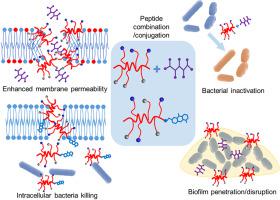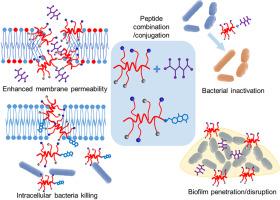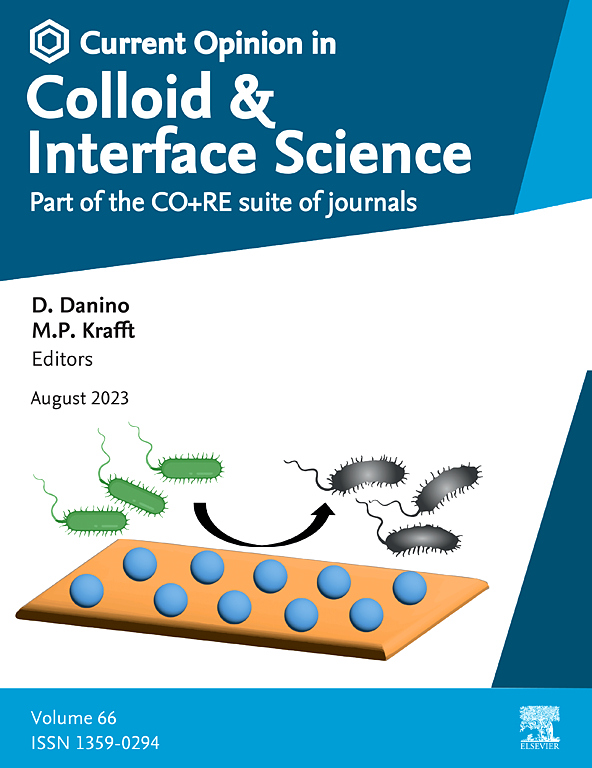Combinatorial therapies of surfactant-like antimicrobial peptides and antibiotics for improved therapeutic efficacy
Abstract
Multidrug combination therapies have been proven to be advantageous in combating the proliferation of antibiotic-resistant bacterial pathogens in recent years, not only contributing to the medical/therapeutic landscape but also offering insights into microbial ecology and evolution. Because antimicrobial surfactant-like peptides kill bacteria/fungi via disrupting the membranes, it is less likely for the microorganisms to develop resistance. Associations of two or more drugs with at least one of them to be an antimicrobial peptide have contributed to the treatment of difficult-to-treat infectious diseases caused by pathogens in numerous in vitro studies. The synergistic action of cationic antimicrobial peptide or surfactant-like molecule with a current antibiotic can bring an effective measure to overcome antimicrobial resistance. Through reviewing recent advances in combinatorial therapies, we show that synergy between different agent types could be a fundamental defense strategy to find against multidrug resistance. Peptide combinations and conjugations with themselves or other molecules could effectively avoid the disadvantages of individual compounds, enhancing antibacterial activity, delivery efficiency and selectivity whilst introducing new functionalities. Combined therapies among peptide amphiphiles, antibiotics and non-antibiotics may provide a practical avenue for an effective management of antibiotic-resistant superbugs and biofilms.



 求助内容:
求助内容: 应助结果提醒方式:
应助结果提醒方式:


